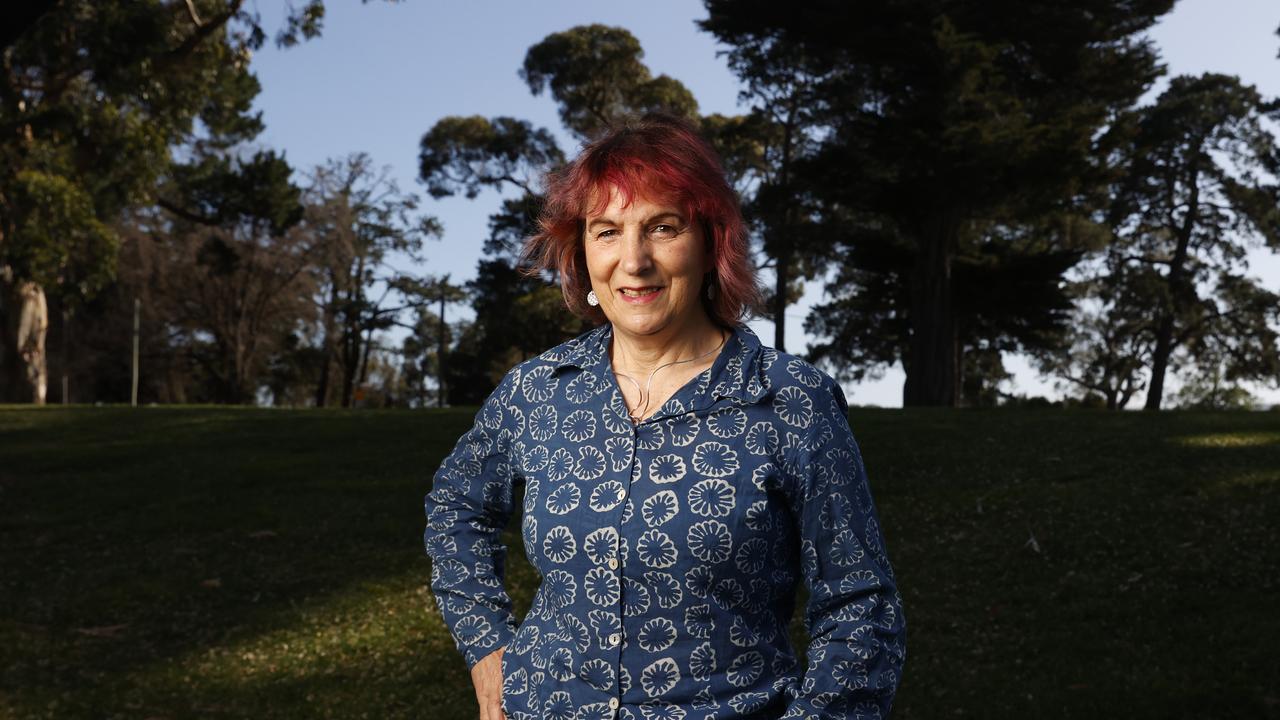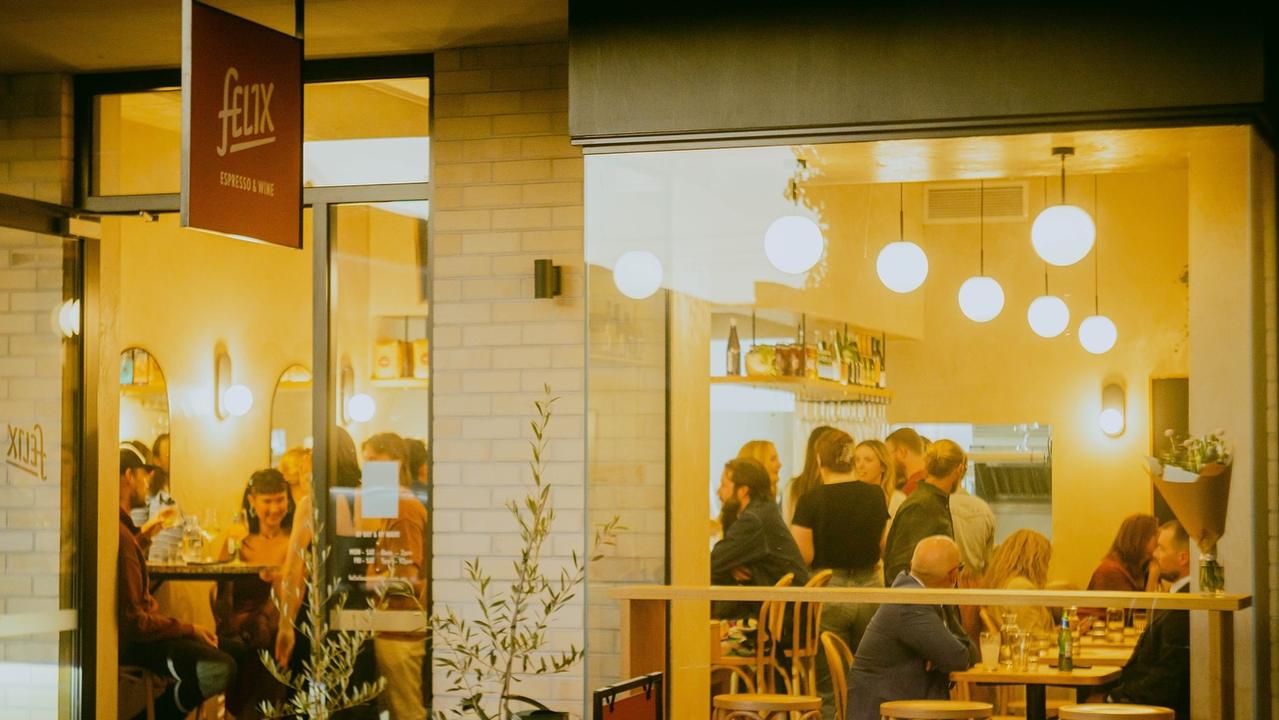TasWeekend: Raunchy cabaret shines light on sex early Hobart
Ahoy there, landlubbers! Join this cast of rogues to relive our frontier town frolics, splice the mainbrace and party like it’s 1829.
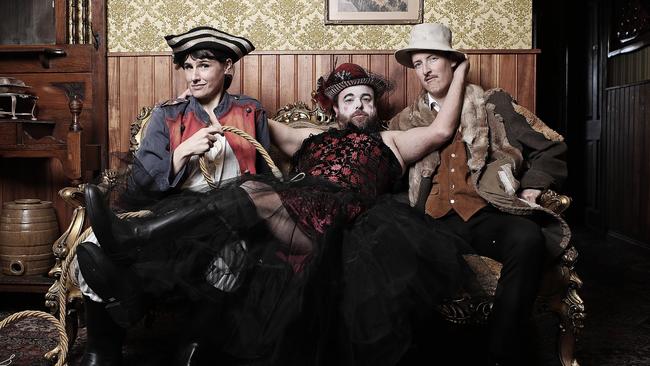
Lifestyle
Don't miss out on the headlines from Lifestyle. Followed categories will be added to My News.
Naughty parlour games, even naughtier songs, and a party culture that had evolved from British naval traditions and shenanigans — the residents of colonial era Hobart knew how to have a good time. Sure, life was hard, and often brutal, but in the face of such hardship, the displaced Europeans also knew the importance of letting their hair down once in a while. And now, modern day Hobartians are getting the opportunity to see if they have what it takes to party like it’s 1829.
Tasmania’s colonial history is rarely characterised in glowing terms. Considering our history of suffering, crime, punishment and genocide, it is hardly surprising that we think of our past as a dark one, and to a great extent it was.
But as is often the way, there was light in that darkness. For all the suffering of the transported felons who landed here — and the suffering they, in turn, inflicted on the indigenous people — there was a vibrancy and culture in old Hobart Town that was quite unlike anything anywhere else in the world.
The Sailor and the Bawd, a new cabaret show created by Hobart Comedy Tours creator and ABC Radio Breakfast show presenter, Ryk Goddard, for this year’s Festival of Voices, will tap into that rich vein of 19th century irreverence and creativity and bring it to life for modern audiences to enjoy.
Performed in the historic atmosphere of the Hope and Anchor Tavern in Hobart, the show will include storytelling and authentic bawdy songs from the period, performed by actors in character, and the audience can participate in some of the outrageous (and sometimes dirty) parlour games that were popular in the old town, and even enjoy some period-accurate cocktails. If you’re brave enough.
Goddard says Hobart in its first 50 years of settlement was one of the most wild, cosmopolitan and subversive frontier towns in the western world.
“The thing that a lot of people don’t realise about that convict period is that hardly anyone was actually locked up,” Goddard says, who researched the era over years as part of a television show he’s developing. “Those who struggled with the system, who broke the rules and re-offended, they were locked up.
“But the ones who could operate within the terms of the system were effectively free to roam: they went to work, did their assigned job, had days off. Sometimes they snuck away at night, they made friends, they went drinking and they had parties.
“People mainly tried to just get on with it and live their lives and get along, such as it was. In the show we talk about pleasure being an escape from the strict rule of law.
“A lot of Goulburn St used to be one-room bars and brothels where people would go and they would know hundreds of songs. They would be able to dance, they had all these skills for amusing themselves.”
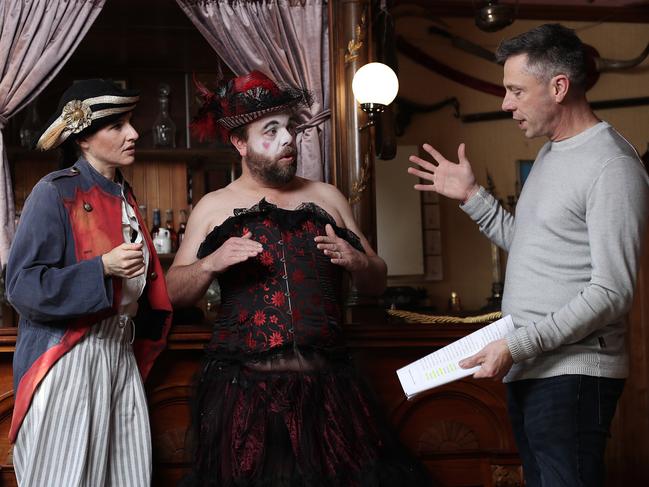
Partly this bawdy party culture was a rebellion against the stifling weight of authority from above, daring to push the boundaries and create some kind of enjoyment from the frequently dreadful situation they found themselves in.
And partly it was an attempt to keep their own culture alive, using songs and stories and games to keep memories of home alive — despite the near certainty of never seeing it again.
“The irony of that, of course, is that at the same time as they were trying to keep their own culture alive, they were also displacing and destroying the songs, language and identity of the people who already lived here,” Goddard says.
“We claim to have brought civilisation here but, when you think about those boats coming into the harbour with people singing songs like ‘The Good Ship Venus’, you have to wonder.
That was the culture we brought here, a naval culture. They were nautical traditions and songs, to a large extent, which they learned on the journey over.”
The Good Ship Venus is a perfect example of the kind of dirty songs that were popular at the time, sung in ships, pubs and brothels alike. A kind of parody of British naval life, each verse is essentially a dirty limerick, giving a brief but colourful description of various crew members aboard a particularly lascivious ship. And with verses shamelessly crafted to rhyme with words like Venus, Morgan, and navigation, well, you kinda get the idea.
Goddard says while these songs are rarely heard these days — they certainly aren’t taught in schools — there are still folk singers and musical groups around who keep them alive and, as naughty as they are, there is still an infectious sense of fun around them.
The parlour games that have been resurrected for the cabaret share a similar sense of deliberately pushing the boundaries of common decency and safety.
“One game, which we plan to play with audience members, is called Hot Cockles,” Goddard says. “Someone is blindfolded and has to kneel with their head in someone’s lap, then other members of the party would take turns to kick them in the bum.
“The blindfolded person has to guess who is kicking them, and if they guess right, they swap with that person.
“Ahem, as you can imagine, there were variations back in the day, but this is the way we will play it! A lot of those games had themes of being slightly humiliating, a bit naughty, and my sense is that they were ways people could court and break the rules. Letting go of the self and being slightly humiliated was a kind of liberation from the rules they were always surrounded by.”
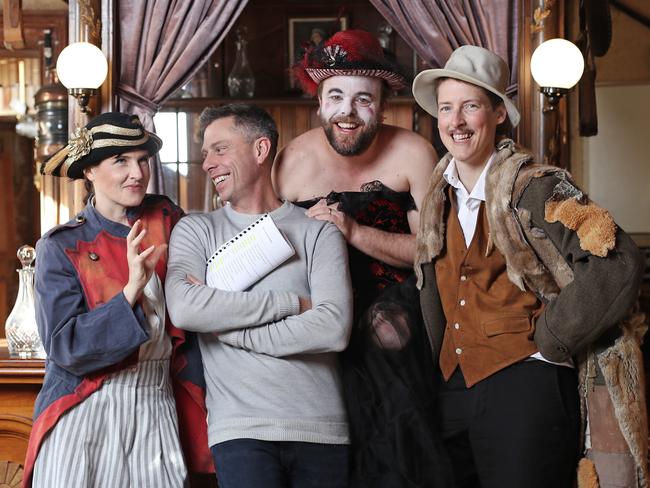
Goddard says the social norms of the time were strangely relaxed in the penal colony as well, with practices like cross-dressing and homosexuality not only common, but barely even frowned upon. Colonial authorities tended to turn a blind eye to many activities that would have been stamped out ferociously back home in England.
In the remote penal colony they were so vastly outnumbered by the convicts and settlers under their watch that it was often deemed the lesser of two evils to just tolerate the proclivities of the great unwashed, simply to keep things peaceful.
“There were lots of men living as couples, and it was well documented on Maria Island that often the men would push their beds together to sleep,” Goddard says.
“The sexuality of the working classes was pretty wild. Technically, sodomy was punishable by death, but that was rarely enforced, and there’s no record of a woman ever being hanged for being gay.
“Men dressed as women to avoid being pressganged into naval service, and women dressed as men to become sailors. The first European woman to set foot in Tasmania was Marie-Louise Victoire Girardin (a French woman who disguised herself as a man and worked as a steward on Bruni D’Entrecasteaux’s ship La Recherche, reaching Tasmania in 1792).
“So Van Diemen’s Land was this incredibly energised frontier where the rules were being made up as they went along. The English authorities had their ideas but things on the ground were quite different.
Men and women were able to transcend the class system in ways that were previously impossible.”
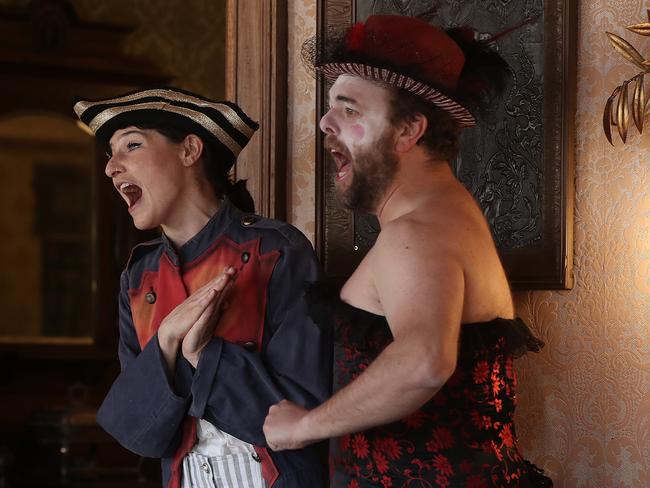
The cabaret is hosted by three colourful characters, who are each an amalgam of real people from the period. Anna Kidd plays the sailor, based on Marie Louise Victoire Girardin and Hannah Snell, a woman who joined the British army and marines by dressing as a man.
The sailor tells the all-too-common tale of a wronged woman who abandons social norms in exchange for adventure.
Kristian Byrne is the bawd, a man who dressed as a woman to escape being pressganged and never turned back. The bawd runs the house and leads the audience in the parlour games and revels that were typical of a long winter evening in the 1800s.
And Oliver Cassidy is the bushranger/pianist for the evening, representing the men who lived as “husband and wife” in the Tasmanian bush, the kind of bushrangers who storm a house and force the residents to dance all night.
The audience is urged to join in the vulgar songs and play the parlour games along with their hosts and, in case a little social lubrication is required, the drinks menu will also feature some authentic cocktails from the period, including the notorious Blow My Skull Off, a potent concoction invented by Governor Thomas Davey and comprising rum, ale, brandy and lime juice.
“We’re going to serve a version of it, anyway,” Goddard laughs. “Maybe a slightly more appropriate version for modern tastes. But it demonstrates how people at the time tried to make something from whatever they could get their hands on.
“Davey was a notorious drunkard, so it’s scary to think that a lot of those early decisions were made by someone who was likely very, very drunk most of the time.
And a lot of the people who were in charge were also very young. [The colonial administrators, John] Bowen and [David] Collins were in their 20s when they were here, and they both had mistresses who were in their teens.
“So really, early Hobart was a lot like young Aussies travelling overseas on a Contiki tour.”
The Sailor and the Bawd, presented by Hobart Comedy Tours for the Festival of Voices, will be performed at the Hope and Anchor Tavern tonight (July 6) and again nightly from July 9-11, tickets $39, adults-only show. Details: festivalofvoices.com

